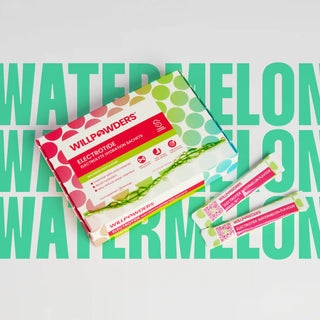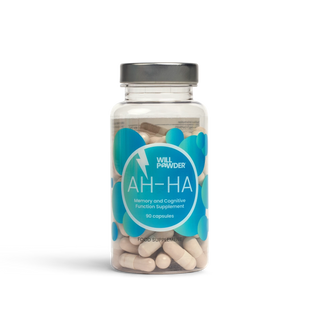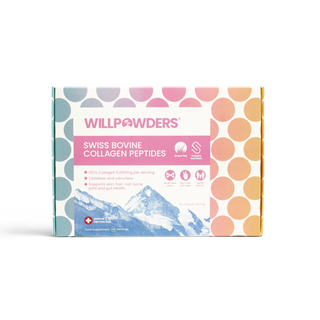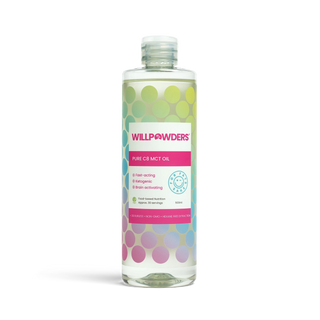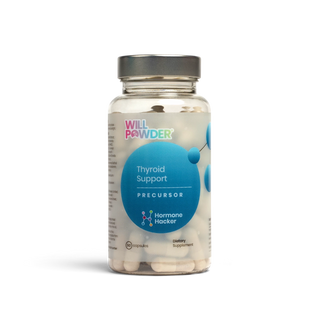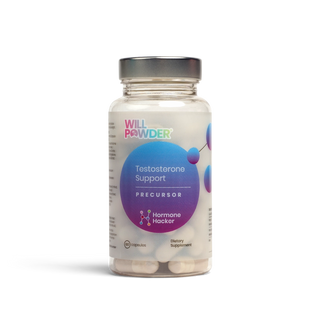
Why Can't I Sleep?
When your hormones start see–sawing – especially through perimenopause and beyond – sleep is often the first thing to go. Shifting oestrogen and progesterone, spiky cortisol, blood–sugar crashes and a frazzled nervous system all gang up to keep you wired at night and wiped out by day.
Since the birth of my son, 7 years ago, which sent my hormones into overdrive, and my husband’s autoimmune diagnosis, which inflames every cell in his body, I have relentlessly scoured the internet for help, often finding myself down a rabbit hole that has led to nowhere, not even a morsel of a gnawed or nibbled carrot. Surely someone out there must have the answers to fix us? It seemed like too much misery to endure whilst we battled the challenges of parenting and career “life” to not do something about it. I felt as though I had to charge my own way because every trip to the doctor resulted in inconclusive advice or a misdiagnosis. It’s been utterly exhausting trying to cut through all the information available in the digital universe and the constant quest for natural solutions left me feeling bemused and helpless.
Given that I live the life of most 30 somethings, a life which is so fast paced that it often leaves me breathless and overwrought with anxiety and stress, I gave up and succumbed to just feeling a bit crap all the time. That was until I read Davinia Taylor’s Hack Your Hormones. I am going to caveat this with: as I leafed through the pages of what I thought might be another thing I wouldn’t have time to see through or commit my ‘oh so time poor reality’ to, I quickly realised that her research and tried and tested approach to finding some hormone zen was something that I could find time to stick to. Why? Because when you know how, it’s totally doable and stickable.
Now, whilst I did find time to let Davinia take me on her journey to hormone Heaven (to be honest, once I started, I couldn’t put it down), I know what it’s like to be stuck in a sense of overwhelm; therefore, you will find a summary of my most stickable, doable and light bulb moments from Hack Your Hormones below. However, in the words of DT, ‘be kind to yourself’ and try and Hack some time to give the book a read in its entirety. She speaks “person” and makes all the intricacies of hormone imbalances feel so manageable. Hack Your Hormones really is a hormone awakening.
Hormones that Support a Good Kip.
- Serotonin or the ‘happy hormone’ - gimme, gimme, gimme! DT explains that serotonin starts off as Tryptophan which is essential for a child’s growth but also regulating our mood and behaviour as an adult. Unfortunately, we can’t produce this amino acid ourselves, so if we are not eating Tryptophan rich goodies, our serotonin levels are affected. You will find some great foods below that can support the production of Tryptophan.
- Melatonin is produced when we are as snug as a bug in a rug! According to DT, light levels can play havoc with our melatonin levels. Exposure to the right amount of light at the right time is key. Avoid wearing sunglasses in the morning and make looking at the sky the first thing you do! Doing this will trigger your cortisol (the wakey wakey hormone) and suppress your melatonin levels until you need them at night. It might seem obvious, but any kind of light at night is going to impact your melatonin levels, so DT advises to embrace the dark!
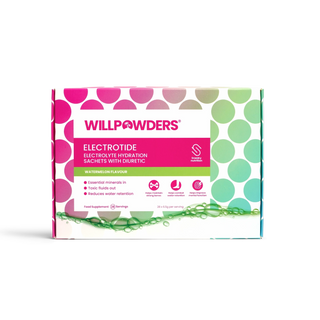

Cortisol
Often demonised as the ‘stress’ hormone, but it’s actually essential for supporting your immune system and giving you the urge to jump (or crawl) out of bed in the morning. Having said this, it can play havoc with your sleep if it is imbalanced. If you don’t produce enough cortisol (and you’ll know because you’ll feel exhausted, especially in the morning) give licorice root, rhodiola or electrolytes in your water a go. WillPowder’s ElectroTide is my ‘go to’ Electrolyte drink of choice. If you produce too much cortisol, your melatonin regulation is key.
Sleepy Food
DT explains that 95% of serotonin is produced in the gut; therefore it is essential that you show your tummy the love in order to promote a restful night. Hack Your Hormones explores the havoc sugary, processed foods can wreak on your gut microbiota which impact your levels of serotonin. Fermented foods like Kefir yoghurt, Kombucha, sauerkraut, sourdough bread, raw cheese and kimchi can all support a healthy gut and encourage the happy hormone to reign supreme. The great thing is, most of this fermented goodness can be made at home, supporting your gut as well as your bank balance.
Eating Tryptophan rich foods in the evening can also boost your serotonin levels.
Some great sources of this amino magic are: turkey, chicken, grass fed red meats, tuna, cheese, milk and other full fat dairy, bananas, sour cherries, nuts, lentils, white fish, avocado, sesame and sunflower seeds (just avoid the oil), nuts and bovine collagen peptides.
Avoiding low fat alternatives is essential in the production of serotonin (permission to avoid watery, rubbish, translucent, low fat garbage has officially been granted. Hoorah!). Chow down on as many essential fatty acids as you can: mackerel, sardines, salmon, anchovies, walnuts and chia seeds are all great sources of omega - 3.
Shifting your eating window and loading up with carbs in the evening are other examples of how you can balance those hormones vital for sleep. By pushing back when you eat, you push back the elevation of your serotonin (a hormone vital for sleep, which is kick started when you eat). Intermittent fasting can seem daunting, so DT advises to do this gradually e.g. if you normally eat breakfast at 7am, try waiting until 7.45am and so on and so forth.
Eating carbs at night might contradict everything you’ve ever been told because we know carbs convert into sugar. However, elevated blood sugar levels trigger an insulin response which suppresses your cortisol level, making way for that delicious sleepy serotonin. It’s a good idea to stop eating 2 or 3 hours before bed so that your digestive system isn’t overwhelmed.
Supplements
Not in a place (just yet) to think about completely overhauling your diet? DT highlights some brilliant supplements that can support your sleep cycle:
5-HTP - boosts your levels of Tryptophan (an amino acid that turns into serotonin, which is vital for sleep)
Vitamin (hormone) D - Take this in the morning to help you to get into a restful state at night.
Licorice root extract - supports healthy cortisol levels, which should also be taken in the morning.
Zinc - helps to raise testosterone levels (low levels result in insomnia).
Ashwagandha - a relaxing adaptogen which promotes falling asleep faster and staying asleep longer.
Lingzhi (Reishi mushroom) - supports quality sleep.
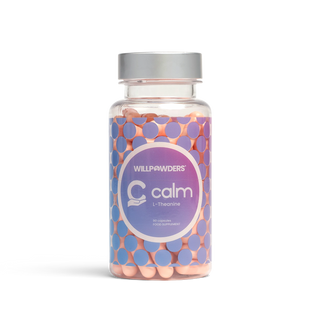

Sleep with WillPowders
ElectroTide - a great source of magnesium which encourages a sense of relaxation and melatonin regulation.
Calm - boosts GABA (Gamma - Aminobutyric Acid) which calms our ‘whirring brain’ and supports serotonin production.
Brain Powder - a great source of Taurine, which activates GABA
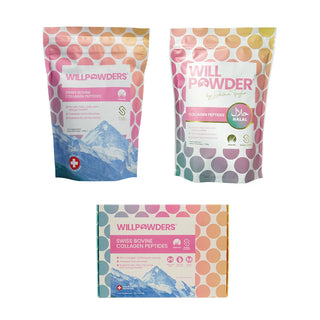

Catch some Extra ZZZ
Bovine Collagen - helps to relax your nervous system.
Spice - reduces inflammation and supports pain management.
Environment and Sleep Aids
Room temperature is key for a good night’s sleep. DT explains that your boudoir should be between 17 and 19 degrees to support a healthy sleep cycle. This little hack is less severe than the benefits of cold water exposure, but if you’re feeling brave, standing under a cold shower for 30 seconds or so, can induce parasympathetic hormones, which calm you right down and support your sleep cycle. This is also a great hack if you are experiencing high levels of stress and anxiety. Much like exposure to cold water, breathing can support the regulation of your parasympathetic nervous system. By breathing deeply, you can activate those calming and relaxing hormones needed for sleep. The Wim Hof breathing method is worth a look - you can learn how to breathe like Wim using his app.
Disclaimer
Our blogs are written with love in the hope that they go some way in helping you feel like the rockstar you are, and whilst we do our due diligence, research like maniacs and fact check our stuff, we know everyone’s journey is different. They are intended to educate and empower you, not usurp medical advice. We would never advise you to stop, adjust, or modify any prescription medication without the direct supervision of your healthcare practitioner, but don’t be afraid to talk to your doctor about your new found knowledge, brought to you by the marvels of nature because they don't know everything! Blogs are always informed by Davinia but often written by a member of the team. Not all blogs reflect Davinia's experiences and sometimes provide alternative perspectives

 Collagen
Collagen
 Protein
Protein
 MCT
MCT
 Electrolytes
Electrolytes
 Vitamins & Minerals
Vitamins & Minerals
 Hormones
Hormones
 Nootropics
Nootropics
 Kombucha
Kombucha
 Biohacking Books
Biohacking Books
 Bundles
Bundles
 Accessories
Accessories






